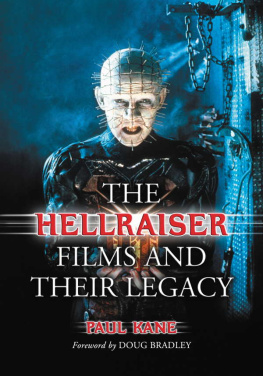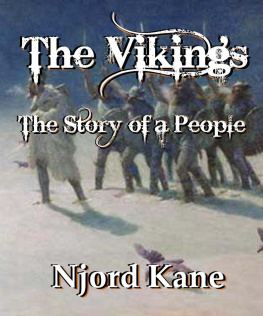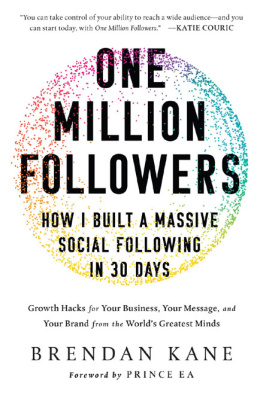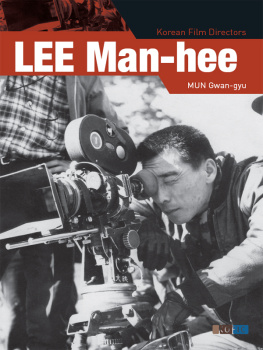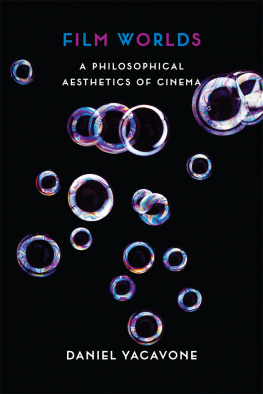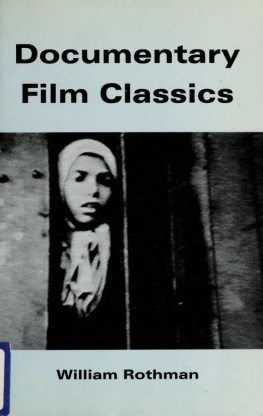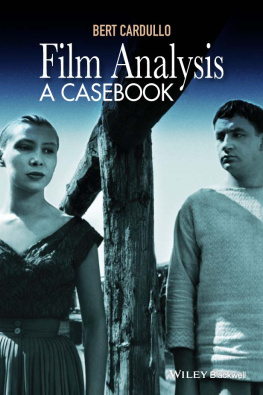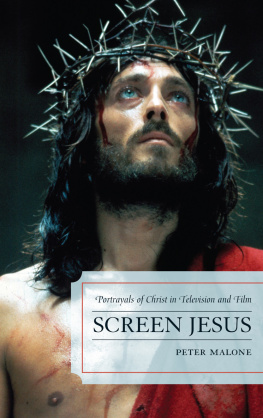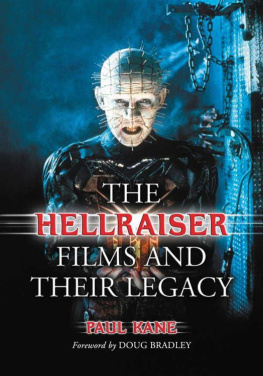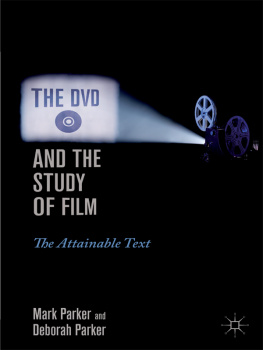Kane - The Hellraiser Films and Their Legacy
Here you can read online Kane - The Hellraiser Films and Their Legacy full text of the book (entire story) in english for free. Download pdf and epub, get meaning, cover and reviews about this ebook. City: Jefferson;N.C, year: 2006, publisher: McFarland & Co, genre: Detective and thriller. Description of the work, (preface) as well as reviews are available. Best literature library LitArk.com created for fans of good reading and offers a wide selection of genres:
Romance novel
Science fiction
Adventure
Detective
Science
History
Home and family
Prose
Art
Politics
Computer
Non-fiction
Religion
Business
Children
Humor
Choose a favorite category and find really read worthwhile books. Enjoy immersion in the world of imagination, feel the emotions of the characters or learn something new for yourself, make an fascinating discovery.
- Book:The Hellraiser Films and Their Legacy
- Author:
- Publisher:McFarland & Co
- Genre:
- Year:2006
- City:Jefferson;N.C
- Rating:4 / 5
- Favourites:Add to favourites
- Your mark:
- 80
- 1
- 2
- 3
- 4
- 5
The Hellraiser Films and Their Legacy: summary, description and annotation
We offer to read an annotation, description, summary or preface (depends on what the author of the book "The Hellraiser Films and Their Legacy" wrote himself). If you haven't found the necessary information about the book — write in the comments, we will try to find it.
Kane: author's other books
Who wrote The Hellraiser Films and Their Legacy? Find out the surname, the name of the author of the book and a list of all author's works by series.
The Hellraiser Films and Their Legacy — read online for free the complete book (whole text) full work
Below is the text of the book, divided by pages. System saving the place of the last page read, allows you to conveniently read the book "The Hellraiser Films and Their Legacy" online for free, without having to search again every time where you left off. Put a bookmark, and you can go to the page where you finished reading at any time.
Font size:
Interval:
Bookmark:
All the photographs and images used in this book are from private collections and picture libraries and are used solely for the advertising, promotion, publicity and review of the specific motion pictures they illustrate. They have not been reproduced for advertising or poster purposes, nor to create the appearance of a specially licensed or authorized publication. Grateful acknowledgment is made to the following for the use of their material. All rights reserved. While every effort has been made to trace and acknowledge all creators and copyright holders, the author apologizes for any errors or omissions and, if informed, will be glad to make corrections in any subsequent editions.
Clive Barker, Gary J. Tunnicliffe, Doug Bradley, Randy Falk (NECA), Stephen Lane (The Prop Store of London), Les Edwards, Phil and Sarah Stokes (Revelations), Marc Calma and Kacey Rodriguez, David A. Magitis, Eric Gross, Shelly Berggren, David Robinson, Eric Horton, Mark Thompson (Checker Books), Gabrielle White (Random House), Dan Cope, Nathan Green, David Stoner (Silva Screen), Rita Eisenstein (Starlog Group), Ian Frost and Dan Forbes.
LIBRARY OF CONGRESS CATALOGUING-IN-PUBLICATION DATA
Kane, Paul, 1973
The Hellraiser films and their legacy / Paul Kane ; foreword by Doug Bradley.
ISBN-13: 978-0-7864-2752-9
(illustrated case : 50# alkaline paper)
1. Hellraiser filmsHistory and criticism. I. Title.
PN1995.9.H42K36 2006
791.43'67dc22 2006029845
British Library cataloguing data are available
2006 Paul Kane. All rights reserved
No part of this book may be reproduced or transmitted in any formor by any means, electronic or mechanical, including photocopyingor recording, or by any information storage and retrieval system,without permission in writing from the publisher.
On the cover: Doug Bradley as the Lead Cenobite (Pinhead) in Hellraiser (New World Pictures/Photofest)
McFarland & Company, Inc., Publishers
Box 611, Jefferson, North Carolina 28640
www.mcfarlandpub.com
tutors and friends.
You pulled back the magicians curtain
and allowed me to look behind.
With huge respect and thanks.
This book couldnt have been written without the help and support of so many people: My mum and dad, and the rest of my family, Clive Barker, Kurt Adam, Doug Bradley, Stephen Jones, Michael Marshall Smith, Kim Newman, Peter Atkins, Gary J. Tunnicliffe, David Robinson, Randy Falk, Les & Val Edwards, Frazer Lee, Shelly Berggren, John B. Ford, Simon Clark, Russell Blackwood, Shannon Larratt, Alec Worley, Joseph ORegan, Bob Keen, Mark Thompson, Eric Gross, Yoram Allon, Max Lichtor, Allan Bryce, Constance Taylor, Nathan Green, Dan Cope, Peter E. Keighrey, Rita Eisenstein, Ken Patterson, Eric Horton, Christopher Fowler, Martin Roberts and Helen Hopley, Marc Calma, Lee Glasby and Claire Wood-Glasby, David Stoner, Peggy J. Shumate, Gabrielle White, Kevin Knott, Judith A. and Scott Richard, Ken Snyder, Phil and Sarah Stokes, David Bamford, Dan Forbes, Caroline Noonan at HarperCollins UK, Peter London at HarperCollins US, Ian Frost, Neil Gaiman, Ed Martinez, Tim Lawes, Stephen Lane, David A. Magitis, and, of course, Marie ORegan, who has been my anchor while writing this book and who persuaded me to do it in the first place. A big thank you to everyone.
Welcome to Hell.
By opening this book you have entered into an agreement. The contents are only for those with a craving, a passion to learn about the Hellraiser mythos, primarily the cinematic interpretations, but also its intrusion into other artistic and cultural forms. If you are not ready to witness such sights, then this book may not be for your eyes. But if you come with me I guarantee an experience that will stay with you for eternity.
And as with most legends it all began with one person: a storyteller.
I have seen the future of Horror and his name is Clive Barker. It is perhaps appropriate that with these almost prophetic words of praise from the one-man American horror factory that is Stephen King, audiences were introduced to the shocking yet spectacular cinematic vision of Clive Barker. For there they were in big white letters preceding the trailer to the very first Hellraiser movie, unleashed upon an unsuspecting public in 1987. I say it was appropriate because these two masters of the macabre have much in common. Both are, of course, best-selling novelists. Both stamp their own inimitable signature on anything they produceso much so that readers soon spotted the connection between King and his literary alter ego, Richard Bachman. But, more significantly, both have also written and directed movies in their time.
However, while Kings attempt at filmmaking resulted in a critical and box office failure (Maximum Overdrive, 1986), and its far-reaching stylistic legacy can be detected in films such as Cube (Vincenzo Natali, 1997), Event Horizon (Paul W.S. Anderson, 1997), Dark City (Alex Proyas, 1998), The Cell (Tarsem Singh, 2000), The Matrix Reloaded/Revolutions (The Wachowski Brothers, 2003), Hellboy (Guillermo del Toro, 2004) and White Noise (Geoffrey Sax, 2005), as well as in TV series such as The X-Files, Buffy the Vampire Slayer (most notably in the silent Gentlemen of Hush), Star Trek: The Next Generation (who could fail to notice the similarities between the Borg and their Cenobite counterparts?) and Farscape (the character of Scorpius). The series figurehead was even immortalized on that most reliable gauge of public opinion, The Simpsons (in a 1994 Halloween special).
But what makes its conception even more remarkable is the fact that the first movie was shot in the directors native England. Admittedly, funding came from the U.S., but this was still an achievement at a time when the UKs cinematic contributions to the horror scene could be listed on the back of a small tombstone. In the days when Hammers productions were a distant memory, Barker was one of the few talents attempting to revitalize the industry on British shores, as recognized in Steve Chibnall and Julian Petleys British Horror Cinema, which called him One of Britains undoubted horror auteurs.

Clive Barker at the Forbidden Planet signing for Weaveworld in London, 1987 (courtesy Forbidden Planet; photograph credit Dick Jude).
Because of his involvement at every stage of the film, from writing the novella on which it was based to providing demon drawings and hand painting special effects onto film cells, there certainly is a case for Hellraiser being not only one of the landmark horror films of all time, but also a true auteur movie. The titles dont just say Hellraiser, they say Clive Barkers Hellraiser. Barker would be the first to admit that he approached the venture knowing relatively little about directing, and that the support of experts like cinematographer Robin Vidgeon and make-up effects man Bob Keen was invaluable, but the film sits very neatly within his canon of work as a whole. The look is pure Barker, as are the themes and the ambitious scope, something that ensuing writers and directors picked up on then extended even further.
As so often happens, nobody who worked on the movie could comprehend just how much of a phenomenon Hellraiser would become, though most did realize they were creating something more cerebral than its contemporaries. To quote Keen: I think we thought it was going to be a good film, an original film. But I dont think we thought it would be as bigyou couldnt possibly imagine ... I think we thought it would be a stepping stone to other projects, but it really caught the imagination of the audience.
Font size:
Interval:
Bookmark:
Similar books «The Hellraiser Films and Their Legacy»
Look at similar books to The Hellraiser Films and Their Legacy. We have selected literature similar in name and meaning in the hope of providing readers with more options to find new, interesting, not yet read works.
Discussion, reviews of the book The Hellraiser Films and Their Legacy and just readers' own opinions. Leave your comments, write what you think about the work, its meaning or the main characters. Specify what exactly you liked and what you didn't like, and why you think so.

